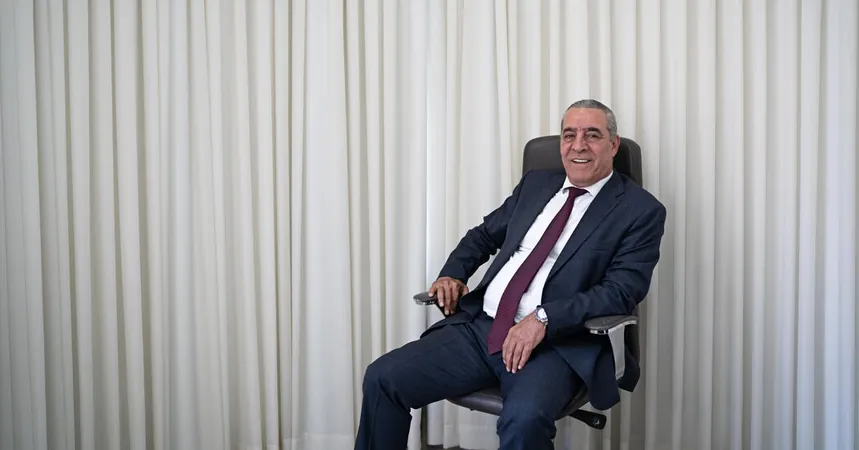
Navigating Tough Parenting Situations: When Friends Cross the Line
2025-04-17
Author: Chun
A Distressing Dilemma
Imagine hanging out with friends, only to find their comments about their child deeply unsettling. That’s the predicament faced by a parent trying to support their friend while protecting their own child from harmful comparisons. This scenario unfolds with Elo and Raven, two parents of 3-year-old Jax, who has autism and developmental delays. While Elo embraces the unique qualities of Jax, Raven’s remarks starkly contrast, making unwarranted comparisons that leave a bitter taste.
The Painful Reality
Raven's frequent comments about Jax’s perceived limitations, like saying he 'doesn’t understand anything,' are not just hurtful for Jax—they're damaging for the listening child too. Such remarks not only misrepresent Jax's abilities but also risk fostering ableist attitudes in other children. It’s critical that children learn to see the strengths in those who are different, rather than focus on deficits.
Setting Boundaries
As frustrating as this might be, parents are faced with the tough question: Can you address unacceptable behavior while preserving friendships? Many would agree that it’s essential to establish boundaries. Writing a thoughtful letter to Raven may be one way to express these concerns without introducing further conflict.
Understanding the Source of Frustration
Raven's inability to recognize Jax's strengths could stem from societal pressures and stigma surrounding disability. It’s easy to fall into the trap of focusing on limitations, especially for parents juggling complex emotions. However, venting frustrations in front of children not only muddies the waters but can lead to deeper societal issues for the kids involved.
Navigating Relationships Wisely
Facing such ableism from a friend isn't easy. Parents have two options: to distance themselves or attempt to educate their friends on the subject. While the latter might feel daunting, it is an important step towards fostering a more inclusive mindset. After all, raising children who value empathy and understanding may hinge on correcting misconceptions—even if the conversation leads to discomfort.
Final Thoughts on Boundaries
Ultimately, the aim is to ensure that children grow up appreciating differences and having positive interactions with all peers. Whether you choose to address the issue directly or adjust your relationship with Raven, remember that setting boundaries is a key part of protecting your child’s self-esteem and fostering a compassionate environment.




 Brasil (PT)
Brasil (PT)
 Canada (EN)
Canada (EN)
 Chile (ES)
Chile (ES)
 Česko (CS)
Česko (CS)
 대한민국 (KO)
대한민국 (KO)
 España (ES)
España (ES)
 France (FR)
France (FR)
 Hong Kong (EN)
Hong Kong (EN)
 Italia (IT)
Italia (IT)
 日本 (JA)
日本 (JA)
 Magyarország (HU)
Magyarország (HU)
 Norge (NO)
Norge (NO)
 Polska (PL)
Polska (PL)
 Schweiz (DE)
Schweiz (DE)
 Singapore (EN)
Singapore (EN)
 Sverige (SV)
Sverige (SV)
 Suomi (FI)
Suomi (FI)
 Türkiye (TR)
Türkiye (TR)
 الإمارات العربية المتحدة (AR)
الإمارات العربية المتحدة (AR)